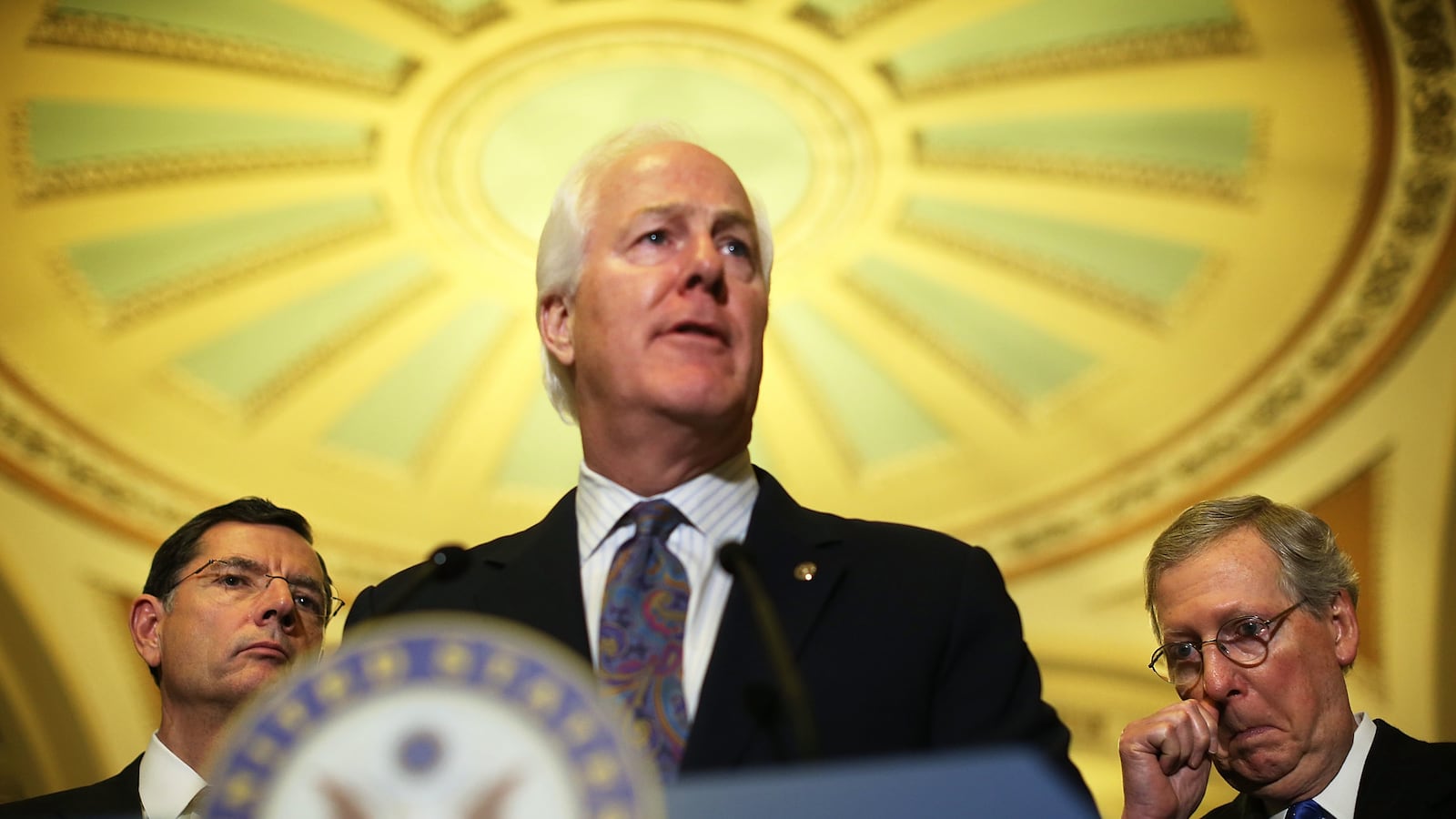Despite all the noise, only one Senator has, to date, come out in firm opposition to Chuck Hagel's potential nomination as Defense Secretary. On Friday, neoconservative Washington Post blogger Jennifer Rubin ran an exclusive statement from Sen. John Cornyn (R-TX) announcing that he would fight his former Republican colleague's appointment. All of Cornyn's first-order criticisms of Hagel revolve around Iran policy, and cite a supposed gap between Hagel and Barack Obama on these issues that I have already dealt with. But Cornyn offered a new point against Hagel:
[Cornyn] pointed to another statement Hagel made in 2010. “He said he wouldn’t support all options being on the table.” This is also inconsistent with the president’s position.

Cornyn's charge struck me as strange, since Hagel signed an op-ed in the Washington Post this year in which he and the other signatories wrote that their "position is fully consistent with the policy of presidents for more than a decade of keeping all options on the table, including the use of military force, thereby increasing pressure on Iran while working toward a political solution."I checked the link offered by Rubin to try to confirm Cornyn's accusations, and came up empty. Hagel made no such "statement" anywhere during the briefing in question. Instead, Cornyn's attack became clear as yet another case of Hagel's statements—and the debate over Iran—being twisted beyond recognition. Rubin writes that "Cornyn obviously was well-versed in Hagel’s record." That seems not to be the case.
Rubin's link takes you to a transcript of an event hosted by the Atlantic Council, a think-tank which Hagel chairs. At the November 2010 event, Hagel said, "So I think talking about going to war with Iran in fairly specific terms should be carefully reviewed. And that’s pretty dangerous talk." That warning does not constitute withdrawing support for leaving the military option on the table. Indeed, in the same event at the Atlantic Council, Hagel also said: "The military option is always on the table—of course it is—for any sovereign nation." So Hagel's words at the link proffered by Rubin express exactly the opposite sentiment of what she and Cornyn are accusing him of.
Perhaps Rubin and Cornyn had in mind Hagel's remarks that day, not that the military option be taken off the table, but rather questioning the utility of constantly repeating military threats against Iran: "I’m not so sure it is necessary to continue to say all options are on the table. I believe that the leadership in Iran... have some pretty clear understanding of the reality of this issue and where we are." But once again: stating that the U.S. needn't constantly reiterate its military threats is not the same thing as taking the military option off the table.
Through this baseless attack and others, this much has become clear: beyond the scurrilous accusations of anti-Semitism and lingering questions about Hagel's positions on gays, the fight over Hagel is boiling down to Iran policies. (One need only look to some other "pro-Israel" criticisms to see this.) What's remarkable is that, even after the debacle that was the Iraq war, Hagel's critics seem dead-set on opposing him simply for mild challenges to the orthodoxy of hawkishness on Iran.





